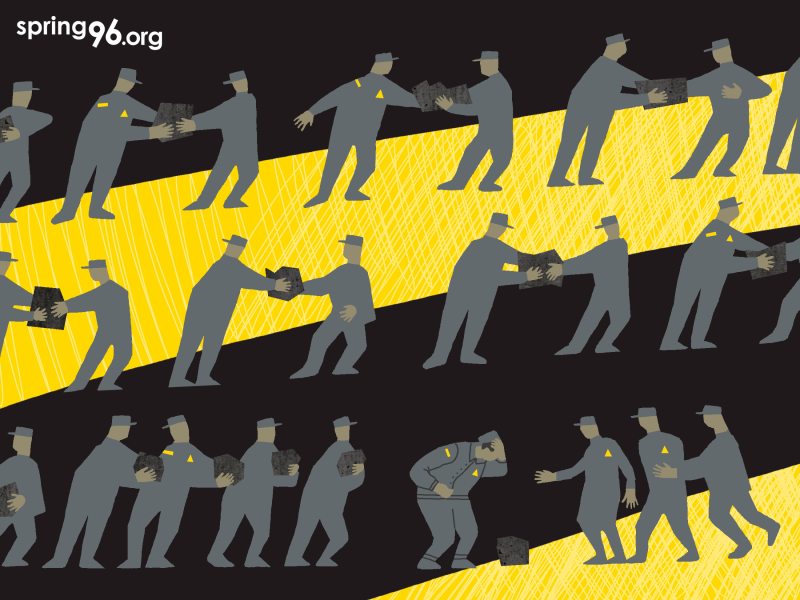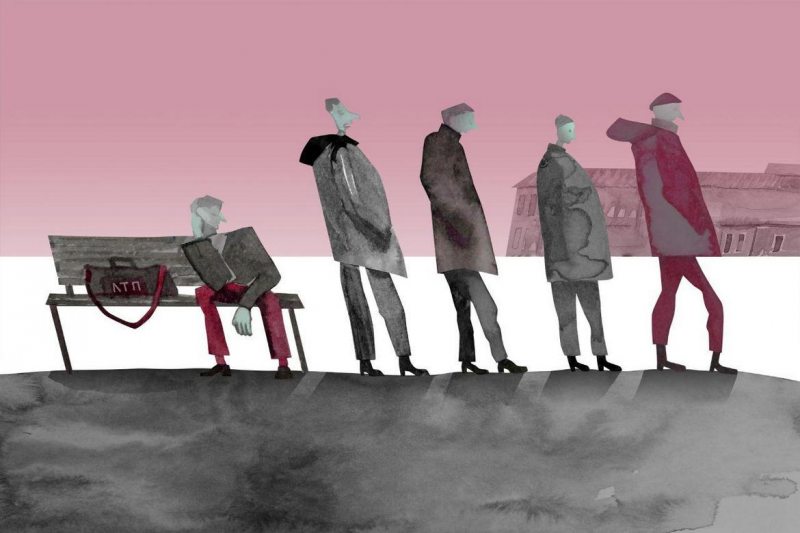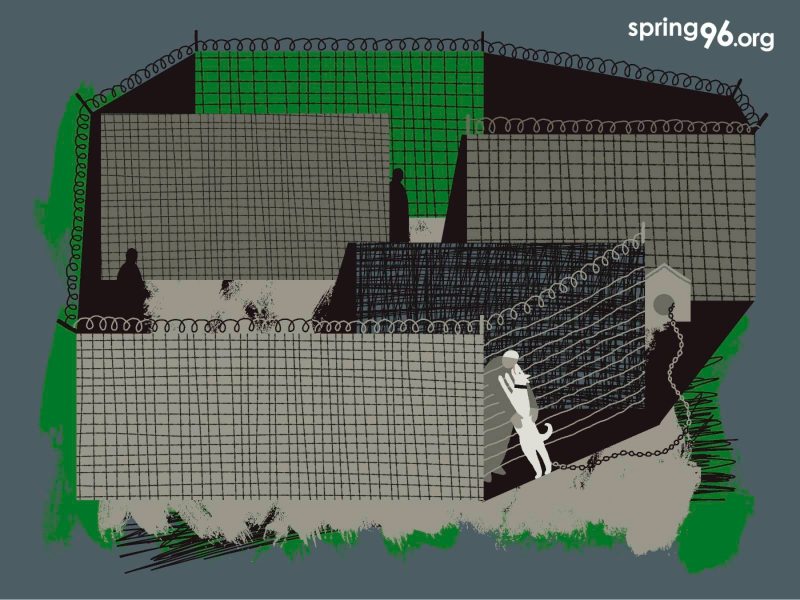The results of the first decade of the new stage of the world struggle against forced labor. The experience of Belarus and its closest neighbors
Ten years ago, at the 103rd session of the International Labour Conference in Geneva, documents of fundamental importance for the elimination of forced labour in the world were adopted: The 2014 Protocol to the Forced Labour Convention of 1930 and the Forced Labour (Supplementary Measures) Recommendation, 2014 (No. 203). The adoption of these documents marked the beginning of a new stage in the international community's aspiration to put an end to forced labor and the institutions that accompany it: debt bondage, slavery-like practices, human trafficking, forced marriage. Together with Viasna human rights activist Aleh Matskevich, we talk about the international and Belarusian practice of eliminating forced labor through the ratification of these important international documents.
The participants of the International Conference recognized that some of the provisions of Convention No. 29 have lost their relevance and should be abolished. This primarily concerns those norms that regulate the transition period (it was specified in Convention No. 29 as a temporary stage until the complete elimination of forced labor). The 2014 protocol notes that the transition period has been completed and the provisions of Paragraphs 2 and 3 of Article 1, as well as Articles 3 to 24 of Convention No. 29, are no longer applicable (updated version of Convention No. 29).
The 2014 Protocol entered into legal force on November 9, 2016 and is open for accession and ratification by all states that have previously ratified Convention No. 29 and those that have not yet joined it. To date, the 2014 Protocol has entered into force for 59 states, and for another one — Mexico — the document will become binding on June 11, 2024. Belarus, which joined Convention No. 29 back in 1956, has so far refrained from signing the 2014 Protocol.
Among the countries bordering Belarus, or which in the past were part of the Soviet geopolitical space together with it, the 2014 Protocol was ratified by Kyrgyzstan (2020), Latvia (2017), Lithuania (2020), Poland (2017), Russia (2019), Tajikistan (2020), Uzbekistan (2019), Estonia (2016).
Armenia, Azerbaijan, Georgia, Kazakhstan, Moldova, Turkmenistan, and Ukraine have not yet ratified the 2014 Protocol.
The norms of the 2014 Protocol call on states, in fulfillment of their obligations under Convention No. 29, to put an end to forced or compulsory labor by taking effective measures to prevent and stop its use, providing victims with protection and access to appropriate and effective remedies, such as reparations and sanctions against offenders who resort to forced and compulsory labor.
Each state recognizing the force of the 2014 Protocol is called upon to develop national policies and action plans to effectively end forced or compulsory labor in the long term. To do this, it is proposed to consult with employers' and workers' organizations, coordinate the efforts of competent authorities in this direction with them and other interested parties, as well as take concrete measures to combat human trafficking.
Uzbekistan has been making great efforts to abolish forced labor in recent years. Previously, this country was known for the widespread use of forced labor in its cotton fields. Now, the so-called "cotton slavery" has been finally abolished, and at the state level, a National Action Plan has been developed to implement ILO conventions, a government program on decent work is being implemented, and other specific and effective measures are being taken to prevent and completely eradicate forced labor in all domains of human life.
Compulsory participation of students, schoolchildren, education and healthcare professionals, and workers of other state institutions in landscaping of districts and cities, in the collection of scrap metal and waste paper, in seasonal work in agriculture is prohibited.
In particular, the government of Uzbekistan has initiated a process of widely informing the population about the prevention of forced labor, explaining the measures taken and legislation concerning forced labor through national television, mass media, and government agencies.
Effective measures to abolish forced labor are being carried out in Tajikistan with the mediation of the ILO. Joint programs have been developed there to combat forced labor with the help of the trade union structure, and information about the organization of safe work for young people has been disseminated through labor inspectors. To promote the 2014 Protocol, increase the knowledge and awareness of all ILO partners in Tajikistan about Alliance 8.7 and Target 8.7 of the 2030 Sustainable Development Goals, a working group was formed and began active work.
Accession to the 2014 Protocol imposes certain obligations on other countries to abolish forced labor. The International Labour Organization has developed a number of methodological documents, such as, for example, the toolkit on Developing National Action Plans on Forced Labour. It contains links to a list of national action plans to combat forced labour or related practices on the basis of which recommendations have been developed.
The abolition of forced labour is important not only from the point of view of compliance by the countries participating in Conventions No. 29 and No. 105 with their obligations to the international community, but also because it contributes to the achievement of Target 8.7 of Goal 8 of the Sustainable Development Goals for each country.
The Sustainable Development Goals (SDGs), or global Goals, were adopted by the United Nations in 2015 as a universal call for action aimed at eradicating poverty, protecting the planet and ensuring peace and prosperity by 2030.
The 17 global goals are complex in nature: it is recognized that they are interdependent and their implementation must ensure a balance between social, economic, and environmental sustainability. SDG's are aimed at making progress for those who are lagging behind and at ending poverty, hunger, AIDS, and discrimination against women and girls.
Goal 8 concerns promoting gradual, inclusive, and sustainable economic growth, full and productive employment, and decent work for all. Targets have been formulated to achieve the goal. One of them, Target 8.7, is to take urgent and effective measures to eradicate forced labour, end modern slavery and human trafficking, and ensure the prohibition and elimination of the worst forms of child labour, including the recruitment and use of child soldiers, and end child labour in all its forms by 2025.
In Belarus, the concept of the SDGs is given great attention at the highest levels of government. The country has established a Council for Sustainable Development, within the framework of which sectoral working groups have been formed: on economic, environmental, and social issues. A national coordinator for achieving the Sustainable Development Goals has been appointed to coordinate the activities of all government agencies to implement the SDG concept. Since March 9, 2023, this position has been held by Deputy Chairman of the Council of the Republic of the National Assembly Valery Belski.
The state has created an Internet website called Sustainable Development Goals in Belarus. Pages dedicated to sustainable development can be found on the websites of the Ministry of Foreign Affairs, the National Statistical Committee, the Ministry of Labor and Social Protection, the Ministry of Natural Resources and Environmental Protection, the Council of the Republic, and other government agencies. Of course, and this is recognized internationally, Belarus has made significant progress on certain Sustainable Development Goals. However, almost nowhere on government Internet resources is there any information about forced labor as a problem that requires rethinking and immediate solution.
Belarus avoids an integrated approach to the implementation of the Sustainable Development Goals, excluding or narrowing separate targets either to avoid their implementation or to improve overall statistical data.
An example is the attitude of the Belarusian government towards the implementation of Target 8.7, reflected in the National List of Indicators of the Sustainable Development Goals: the eradication of forced labor is reduced to indicators of the proportion and number of children engaged in child labor. Not only are there no statistics on other aspects of forced labor, but there is not even a description of them.

Forced labor: how the Belarusian government does (not) comply with international obligations
But in Belarus, the problem of forced labor has a much more diverse character, which the authorities do not want to pay attention to. These are forced labor of prisoners in labour therapy centres (LTP); forced labor of "obligated" persons; prison forced labor of convicts, including political ones; forced labor on clean-up days; forced labor of administratively convicted, citizens with criminal records, those sentenced to home confinement, former prisoners; forced labor in military service. In the context of forced labor, we can talk about other domains of society's life: the existence of mandatory long-term work assignments for young professionals; the widespread use of contractual forms of hiring workers; financial sanctions against the unemployed; mandatory performance by employees of functions that are not listed in employment contracts, etc.
"Such a selective approach to the implementation of global goals, where the attention of the Belarusian society and the international community is switched from systemic problems to successful cases, or those areas of activity that have a chance to be improved in the short term, creates the illusion of a "social paradise" in Belarus, or leads to the creation of ideological concepts such as "a country for life", which does not always and fully correspond to reality, and sometimes, on the contrary, distorts it beyond recognition.
Belarus has every chance to become a responsible participant in international agreements and top the most demanding rankings of countries in social and economic achievements. But for this, it needs an internal dialogue and a government that would have the political will and the necessary competencies," concludes human rights activist Aleh Matskevich.
The Viasna Human Rights Center collects information about the facts of forced labor in Belarus. If you have become a victim or witness of forced labor, please inform human rights defenders on Telegram @viasnainfo

Forced labor in Belarus in the light of global assessments


















